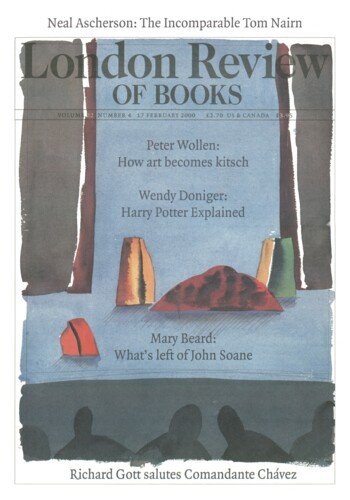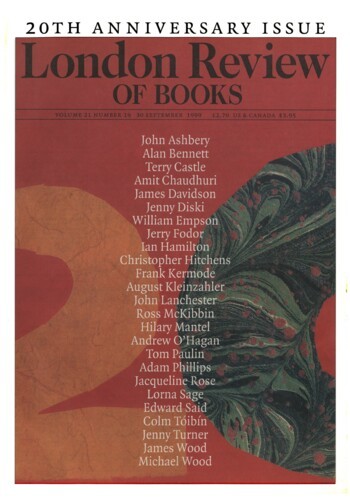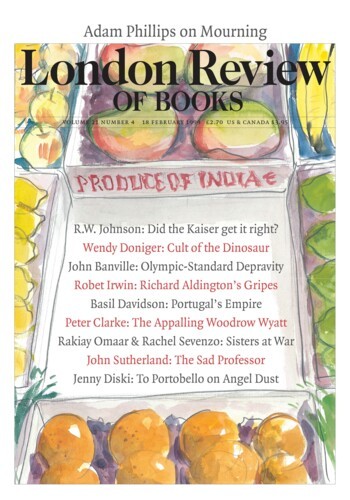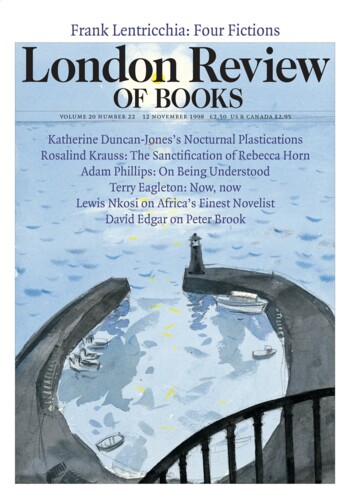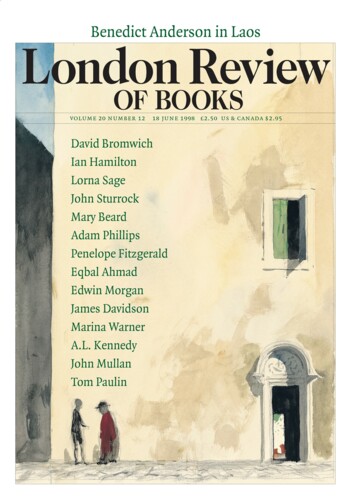You call that a breakfast?
Adam Phillips, 17 February 2000
As there’s nothing you can do to a joke to make it funny, except tell it well, the telling of jokes can be a testing time for everyone involved. And once they’ve been told we rarely have conversations about whether or not they have worked. Good art makes us think and talk and write; good jokes just amuse us. Either we get them or we don’t; and when jokes are interpreted they begin to sound like bad jokes. In fact, when it comes to jokes, explanation and understanding are at odds with each other. If you get the joke you can explain it, but explaining a joke rarely makes anyone happy (you couldn’t have a book called ‘The Best Jokes Explained’). So the idea of someone being serious about jokes – wanting something from jokes besides what is patently on offer – is not, in the ordinary way of things, very enticing.’‘
